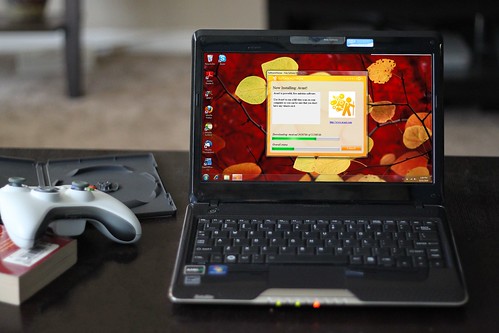Chapter 7
Problem Solving and Inquiry Learning with Software and Web
Tools
What are the standard software applications found on most computers today and what open source software alternatives are there?
Various
types of computer software are used to simplify the operations and applications
of computer programs. There are two main types of software. System software is
responsible for the overall functioning and control of a computer. It includes
the operating system, network operating system, database managers, and TP
monitor. Application software performs specific functions in specialized ways
to produce a variety of services, including word processing, databases,
spreadsheets, slides and presentations, internet browsing, email management,
movie making or DVD burning to name a few. You will recognize many of these
programs by their commercial name: Microsoft Word, PowerPoint, Excel, Adobe,
Photoshop, Internet Explorer and Norton Antivirus.
 |
| Photo credit to Ohrizon. |
-
Word processing software enables writers to
enter data into a word processing document. They have long replaced typewriters
and even handwritten letters. It also allows users to create digital documents
that can be drafted, edited, and shared electronically.
-
Web browsing software allows computers to visit
favorite website or search for new information online. Popular browsers include
Internet Explorer, Google Chrome and Safari.
-
Presentation software like PowerPoint gives
computer users creative ways to construct digital slideshows and other displays
that incorporate text, sound, voice, and pictorial images.
-
Antivirus software scans a computer for
malicious programs that deliberately interfere with its operation. A virus can
spread when one computer communicates with another computer, much like humans
catch a cold or viral infections. Antivirus is an essential tool to protect
your computer against the constant threat of these potentially dangerous
programs.
Open source software is “open” for
the public to use, copy, and recreate, usually at little or no cost. Profit-making
companies develope much of the software for computers today because it's
reliable and easy to modify. Organizations
deliberately make the source codes available free to users and software developers
with the idea that new and improved applications will emerge, thereby stimulating
innovations within a wider community. Some technology educators consider open
source software to be safer to run on computers because it is more secure in
terms of privacy.
Squeak Etoys
Squeak Etoys is an open source with
free downloadable software program that supports inquiry learning and problem solving
for elementary and middle school students. It has become a colorful,
kid-friendly development environment with strong multi-media capabilities. It
teaches students how to model things with math, logic, and merge that skill
with creativity. Etoys is great for modeling things quickly and easily!
Summary
Chapter seven overviews how
educational software supports and promotes problem solving and inquiry learning
for students from kindergarten to twelfth grade. The chapter also discusses
different kinds of educational software, from open source materials to commercially
produced programs. The last section introduces intelligent tutoring systems as
emerging instructional options for teachers, specifically math and science
education.
Very thorough response and observations related to the Focus Question - nice work. Do try to provide a bit more personal reflection/personalization for future posts and add the resource, too. Great video enhancement
ReplyDelete